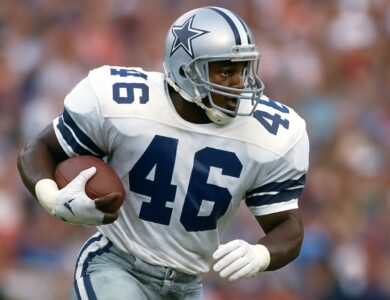Joseph M. Giannelli: A Legacy in Collegiate Athletics and Coaching
A Comprehensive Biography of Joseph M. Giannelli

Joseph M. Giannelli was a highly respected figure in collegiate athletics, known for his exceptional coaching career and his significant contributions to various sports programs. Over the course of several decades, he left a lasting impact on the sports community, particularly through his work at the University of Connecticut (UConn). This article provides an in-depth look at his life, career, and legacy in athletics.
Quick Bio of Joseph M. Giannelli
- Full Name: Joseph M. Giannelli
- Date of Birth: July 18, 1926
- Place of Birth: Medford, Massachusetts
- Date of Passing: December 9, 2002
- Profession: Coach, Educator, Mentor
- Major Contributions: Football, Lacrosse, Golf Coaching
Early Life and Education
Childhood and Athletic Beginnings
Joseph M. Giannelli was born in Medford, Massachusetts, where he demonstrated a keen interest in athletics from an early age. As a student, he excelled in multiple sports and quickly became recognized as a standout athlete. His passion for sports laid the foundation for his future career in coaching.
Military Service and Higher Education
During World War II, Giannelli served in the U.S. Navy, temporarily putting his educational and athletic aspirations on hold. After completing his service, he enrolled at Western Maryland College, where he continued to thrive in athletics. He lettered in five different sports, showcasing his versatility and competitive spirit.
Coaching Career and Achievements
Early Coaching Years
Giannelli began his coaching career at Hofstra University in 1951, where he took on roles as an assistant football coach and a freshman lacrosse and wrestling coach. He remained at Hofstra until 1958, refining his coaching techniques and mentoring young athletes.
In 1959, he transitioned to Boston University, where he coached the freshman football team until 1961. The experience he gained during these years further solidified his expertise in coaching and preparing athletes for higher levels of competition.
High School Coaching and Return to Medford
In 1962, Giannelli returned to his hometown and became the head football coach at Medford High School. During his tenure, he developed strong coaching strategies that emphasized teamwork, discipline, and resilience. His influence extended beyond the field, shaping the character and careers of numerous young athletes.
Contribution to UConn Athletics
In 1966, Giannelli joined the University of Connecticut as an assistant football coach. His tenure at UConn spanned several decades, and he played a crucial role in the team’s success. Under his guidance, the UConn football team won multiple Yankee Conference championships in 1970 and 1973, with shared titles in 1968 and 1971.
Apart from football, Giannelli also contributed to the men’s lacrosse program, serving as an assistant coach in 1967 and later as head coach in 1981. His leadership and coaching acumen helped build strong teams that competed at high levels.
The Legacy in Collegiate Golf
Head Golf Coach at UConn
In 1981, Giannelli took on a new challenge as the head golf coach at UConn, a role he held for nearly two decades until 2000. His influence in collegiate golf was profound, and he led his teams to numerous victories, including:
- BIG EAST Championship Victory (1994) – Under his leadership, the UConn golf team secured a prestigious conference title.
- ECAC Championship Win (1993) – Another milestone in his coaching career, demonstrating his ability to lead teams to excellence.
- New England Championships – His teams won four New England titles and achieved top 10 finishes in 97 out of 124 tournaments.
Coaching Accolades
Giannelli’s outstanding contributions to collegiate golf earned him multiple coaching awards, including:
- BIG EAST Conference Coach of the Year (1994-1995)
- New England Coach of the Year (1992, 1994)
- Gordon McCullough Award (1992) – For his remarkable contributions to New England collegiate golf.
He also served as the President of the New England Intercollegiate Golf Association in 1988, further cementing his influence in the sport.
Mentorship and Lasting Influence
Developing Future Athletes
Throughout his coaching career, Giannelli was known for his commitment to mentorship. He not only trained athletes for competition but also instilled in them values of hard work, discipline, and sportsmanship. His former players often spoke of his dedication to their personal and professional growth.
Contributions to Collegiate Sports
Beyond coaching, Giannelli was instrumental in shaping the structure of collegiate athletics. He worked closely with athletic departments and organizations to improve training programs, scholarship opportunities, and overall sports management strategies.
Personal Life and Legacy
Family and Personal Interests
Giannelli was married to Joan (Minnick) Giannelli, and together they built a life centered around sports, education, and mentorship. He was known for his deep passion for coaching and his unwavering support for student-athletes.
Recognitions and Honors
His legacy continues through the players he mentored and the impact he made in collegiate sports. His contributions to UConn and the broader athletic community have been commemorated in various ways, and he remains an inspiration for future generations of coaches and athletes.
Conclusion
Joseph M. Giannelli’s name is synonymous with excellence in collegiate athletics. From his early days as a multi-sport athlete to his celebrated career as a coach, he left an indelible mark on the sports world. His leadership in football, lacrosse, and golf at the University of Connecticut is a testament to his unwavering dedication and expertise.
His coaching philosophy emphasized not just winning games but developing athletes into well-rounded individuals. As a mentor, educator, and leader, Giannelli’s legacy continues to inspire those who follow in his footsteps.
Through his remarkable career, Joseph M. Giannelli proved that great coaches do more than build winning teams—they shape lives, leaving a lasting impact that transcends generations.



